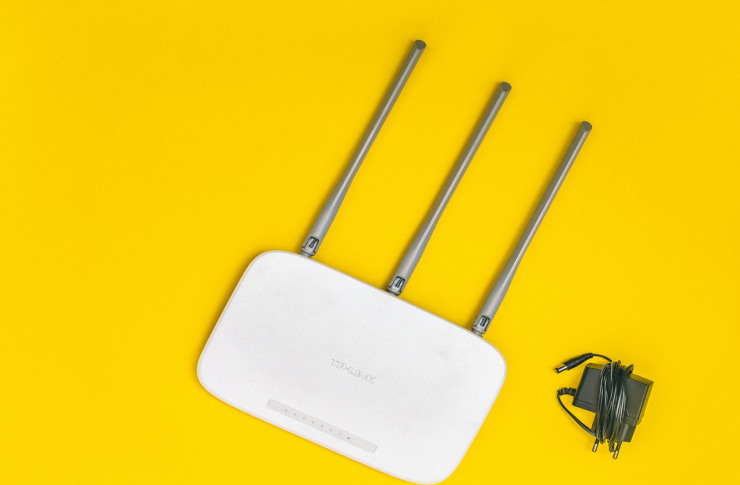Here's How to Get Internet Without a Landline
Gone are the days when a landline was essential for an internet connection. With technological advancements, alternatives like 4G and 5G boxes offer reliable, high-speed connections without the need for a fixed line. These solutions are ideal for flexibility and convenience, catering to diverse needs such as remote work, streaming, and gaming, making them a game-changer in the broadband industry.

Why Choose a Connection Without a Fixed Line?
Landline-free internet is becoming increasingly popular due to its convenience and cost-effectiveness. Traditional connections often require installation fees, equipment costs, and long-term contracts tied to fixed telephone lines. For many, especially those who don’t need a home phone, these extra charges feel unnecessary.
Without a fixed line, users can enjoy hassle-free setups, portable devices, and lower monthly expenses. This option is particularly beneficial for renters, frequent movers, or those living in rural areas where landline infrastructure is limited or outdated. It’s also an eco-friendly choice, reducing the need for additional wiring and hardware.
With options like mobile broadband, 4G and 5G connections, and satellite internet, users can select services that match their speed and data needs, making landline-free internet a practical alternative for modern lifestyles.
The Alternatives: 4G and 5G Box
4G and 5G boxes are the most popular alternatives to traditional landline-based broadband. These devices use mobile networks to provide internet access, offering significant benefits in terms of speed, reliability, and flexibility.
- 4G Box: A 4G box is a portable router that uses a SIM card to access 4G networks, creating a Wi-Fi connection. It’s ideal for homes and offices with moderate internet usage. Speeds vary depending on the provider and location but typically support streaming, browsing, and light gaming.
- 5G Box: The next-generation solution, a 5G box provides ultra-fast speeds and low latency. Perfect for heavy internet users, 5G can handle multiple devices, online gaming, and 4K streaming without interruptions. While coverage is still expanding, 5G is a promising option for those seeking top-tier performance.
Both 4G and 5G boxes are easy to install—just plug and play—and require no fixed infrastructure, making them a favorite for those seeking flexible, no-commitment broadband solutions.
Providers Offering Landline-Free Solutions
Several providers now offer competitive packages for landline-free internet, catering to a growing demand for flexible connectivity.
- T-Mobile (Home Internet): With extensive 4G and growing 5G coverage, T-Mobile provides fast and affordable internet plans. Prices typically range from $50 to $70 per month, depending on the speed and location.
- Verizon 5G Home Internet: Verizon’s 5G Home service offers lightning-fast speeds of up to 1 Gbps in select areas, with no data caps. Prices start at around $50 per month for eligible users.
- Skyroam Solis: A portable hotspot solution, Skyroam offers global internet connectivity without a landline. It’s perfect for travelers and those requiring internet on the go.
- Starlink (Satellite Internet): For rural areas, Starlink provides high-speed internet using satellites. While pricier, starting at $110 per month, it offers connectivity in locations where traditional broadband options are unavailable.
By comparing offers to find the best price, users can select a provider that suits their budget and internet needs.
How Could 5G Be a Game Changer?
5G technology is revolutionizing the broadband landscape, delivering speeds up to 100 times faster than 4G and significantly reducing latency. This leap in performance makes 5G a game-changer for both personal and professional use.
For home users, 5G supports seamless streaming, gaming, and video conferencing, even with multiple devices connected simultaneously. Its low latency is ideal for applications like virtual reality and augmented reality, enhancing entertainment and remote work experiences.
Businesses also benefit from 5G’s reliability and speed, enabling efficient cloud computing, real-time data sharing, and uninterrupted online operations. Additionally, 5G eliminates the need for extensive infrastructure, making it a viable solution for areas lacking traditional broadband connectivity.
As 5G coverage continues to expand worldwide, its potential to replace fixed-line internet entirely is becoming increasingly evident.
Useful Tips for Getting Internet Without a Landline
- Check Coverage: Ensure the provider’s 4G or 5G coverage is strong in your area.
- Compare Plans: Evaluate different providers for speed, data limits, and pricing.
- Consider Your Needs: Choose 4G for moderate use and 5G for heavy or professional usage.
- Look for No-Contract Options: Flexibility is key, especially for renters or frequent movers.
- Test the Speed: Many providers offer trial periods—test the connection before committing.
Conclusion
Landline-free internet solutions are transforming the way we stay connected, offering flexibility, speed, and cost savings. With options like 4G and 5G boxes, satellite internet, and portable hotspots, there’s a solution for every need and lifestyle. As technology advances, these alternatives are poised to become the new standard for reliable and efficient internet access worldwide.




